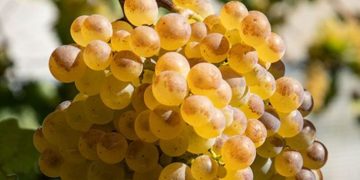Grapes are one of the most weather-sensitive plants in Switzerland, the culture needs warmth and develops only at temperatures above 10 degrees Celsius. Accordingly, the thermophilic vine is of particular interest for climate history and for analyzing the effects of global warming, writes Renata Hodel in an article on www.lid.ch.
Researchers at the Swiss national agricultural research institute Agroscope have been monitoring grapes since 1925. The Agroscope Research Center in Pully systematically records all the information about the most important stages of grape development, such as the beginning of growth, flowering, the beginning of the ripening of the grapes or the ripening period, as well as the timing of the harvest of the Chasselas grapes in the experimental plot of the local wine center.
Agroscope boasts one of the longest series of systematic observations in the field of grape phenology in Switzerland. And the recorded observations made it possible to assess the impact of climate change on grapes in the Lake Geneva region. In addition, Agroscope research in the field of viticulture and winemaking is aimed at solving the practical problems of Swiss winemakers, taking into account regional characteristics.
Since 1985, the Agroscope research center in Pulli has noted that the grapes are ripening earlier and earlier, which also means that harvest times are constantly decreasing.
The first record was set in 2011 when Chasselas began to ripen on July 22. The exceptional thermal conditions recorded this year since spring have now led to a new early ripening record in this long series of measurements over almost a century: the observed grapes beat the old record by two days, and the grapes began to ripen by July 20th. This is also more than three weeks ahead of the average date for this stage of maturity, calculated between 1925 and 2022.































